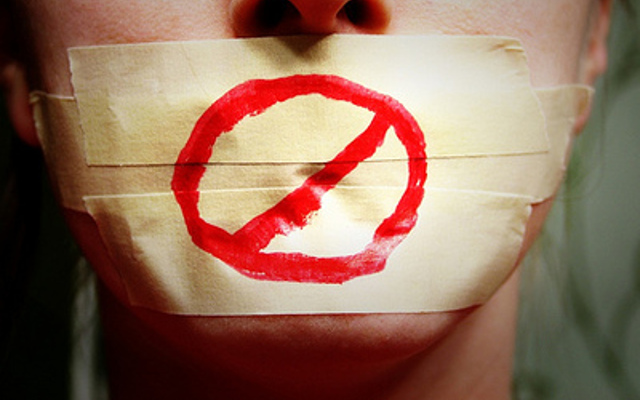Government-sponsored oppression of Shia in Saudi Arabia is well documented. But government oppression also affects the populace more broadly, through legislation which violates fundamental human rights. Several widely-used laws criminalize political and religious criticism of the king, state, or religious establishment, contravening the universal right to freedom of opinion and expression.
The government utilizes three laws in particular to prosecute dissidents who criticize the government or religious establishment: the Anti-Terror Law, Anti-Cybercrime Law, and the Press and Publications Law. These laws employ vague language to criminalize an array of activities, including the exercising of basic human rights like expression. Some broadly-worded articles of the Press and Publications Law allow for the criminalization of non-violent acts of free speech and expression. The law also states that any external print will not be approved if the content “insults” Islam or the system of governance in Saudi Arabia. The Anti-Terror Law criminalizes terrorism, but defines it broadly as “any act intended to disturb the public order of the state … or insult the reputation of the state or its position.” Lastly, the Anti-Cybercrime Law criminalizes internet defamation and the dissemination of information for terrorism purposes. Because the government’s definition of terrorism is vague, the potential reach of the Anti-Cybercrime Law is undefined. The law can thus be used to criminalize a wide range of non-violent, expression-related activities.
In Saudi Arabia, criticizing the country’s religious establishment is as dangerous as criticizing the royal family, because of the close, and mutually reinforcing, ties between the two institutions. The government’s use of the Anti-Cybercrime, Anti-Terror, and Press and Publication Laws reflect this. The Anti-Cybercrime Law bans the “production, preparation, transmission, or storage of material impinging on public order, religious values, public morals […].” The Press and Publications Law mandates that all expressions and materials on social media must align with Sharia law and Islam, and cannot provoke disorder or misconduct within the Kingdom. The government utilizes the Anti-Terror Law to charge dissidents with “disrupting the national unity” and “undermining the regime.”
These laws infringe upon Saudis’ freedoms of expression and allows the government to prosecute dissidents, whether they are Shia or Sunni. In July 2015, Saudi security forces arrested Dr. Zuhair Kutbi and detained him for months after he advocated for a constitutional monarchy during a television interview. During the interview, Dr. Kutbi also spoke about combating religious and political repression. After his arrest, Saudi security forces interrogated him in an unknown detention center in Mecca. Saudi authorities have not made clear what charges Dr. Kutbi faces. However, investigators suggested that he might face trial for inciting public opinion, insulting the judiciary, or offending symbols of the state. These charges fall under the definition of terrorism.
In November 2015, Saudi security forces arrested Palestinian poet Ashraf Fayadh, and convicted him of apostasy, a verdict that carries the death sentence. Authorities accused him of defaming Islam and Saudi Arabia, and distributing a book of his poems that the government claimed promoted atheism. In addition to charging Fayadh with blasphemy, authorities convicted him of storing images of women on his phone, which violates the Anti-Cybercrime Law.
Authorities’ convictions of Dr. Kutbi and Fayadh, demonstrate the government’s use of vague and sweeping legislation to criminalize expression, infringe upon human rights, and oppress its citizens of all sects. Its measures to suppress political expression and human rights activity reflect the government’s concern that calls for political reform and questions regarding the religious establishment represent an existential threat to the Kingdom’s current political structure.
Tyler Pry is the Sheikh Nimr al-Nimr Advocacy Fellow at ADHRB





